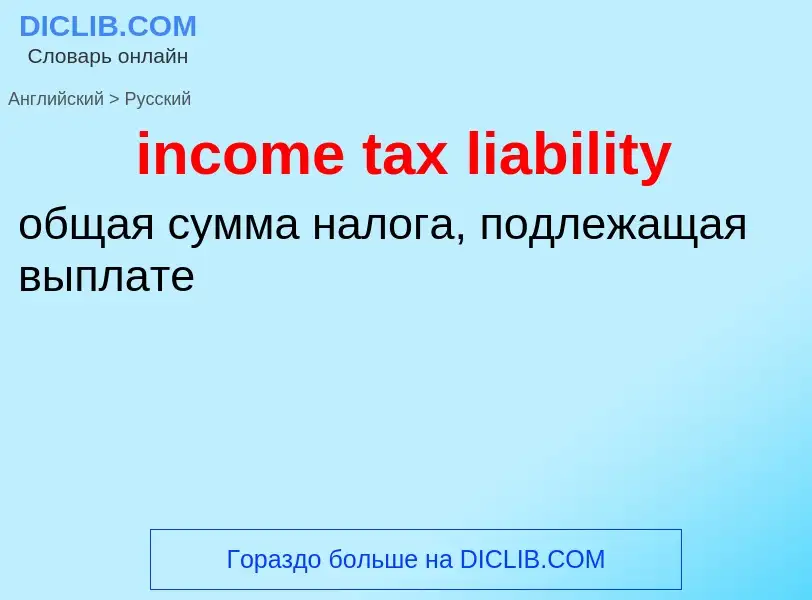Traduzione e analisi delle parole tramite l'intelligenza artificiale ChatGPT
In questa pagina puoi ottenere un'analisi dettagliata di una parola o frase, prodotta utilizzando la migliore tecnologia di intelligenza artificiale fino ad oggi:
- come viene usata la parola
- frequenza di utilizzo
- è usato più spesso nel discorso orale o scritto
- opzioni di traduzione delle parole
- esempi di utilizzo (varie frasi con traduzione)
- etimologia
income tax liability - traduzione in russo
['ɪnkʌmtæks]
общая лексика
подоходный налог (на доход до 20 700 ф.ст. - 25%, свыше этого - 40%)
налог подоходный
сокращение
IT
финансы
подоходный налог (налог, взимаемый в виде процента от доходов физических лиц или домохозяйств)
американизм
налог на прибыль (налог, взимаемый в виде процента с прибыли юридических лиц)
синоним
Смотрите также
Wikipedia
Income tax in Australia is imposed by the federal government on the taxable income of individuals and corporations. State governments have not imposed income taxes since World War II. On individuals, income tax is levied at progressive rates, and at one of two rates for corporations. The income of partnerships and trusts is not taxed directly, but is taxed on its distribution to the partners or beneficiaries. Income tax is the most important source of revenue for government within the Australian taxation system. Income tax is collected on behalf of the federal government by the Australian Taxation Office.
The two statutes under which income tax is calculated are the Income Tax Assessment Act 1936 and the Income Tax Assessment Act 1997; the former is gradually being re-written into the latter. Taxable income is the difference between assessable income and allowable deductions. There are three main types of assessable income for individual taxpayers: personal earnings (such as salary and wages), business income and capital gains. Taxable income of individuals is taxed at progressive rates from 0 to 45%, plus a Medicare levy of 2%, while income derived by companies is taxed at either 30% or 27.5% depending on annual turnover, but is subject to dividend imputation. Generally, capital gains are only subject to tax at the time the gain is realised and are reduced by 50% if the capital asset sold was held for more than one year.
In Australia the financial year runs from 1 July to 30 June of the following year.

![Payroll]] and income tax by OECD Country in 2013 Payroll]] and income tax by OECD Country in 2013](https://commons.wikimedia.org/wiki/Special:FilePath/Payroll and income tax by country.png?width=200)

